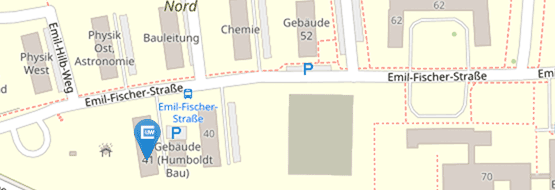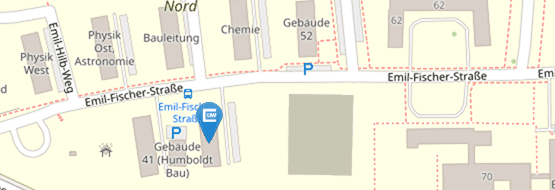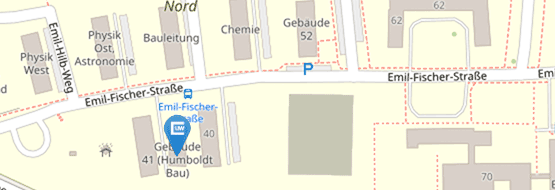Oberseminar Wissenschaftliches Rechnen (Dr. Vesa Kaarnioja)
Modeling domain uncertainty using periodic random variables with application to elliptic PDEs
| Date: | 10/07/2022, 12:00 PM - 1:00 PM |
| Category: | Veranstaltung |
| Location: | Hubland Nord, Geb. 30, 30.02.003 |
| Organizer: | Lehrstuhl für Mathematik IX (Wissenschaftliches Rechnen) |
| Speaker: | Dr. Vesa Kaarnioja |
Abstract:
Computational measurement models may involve several uncertain simulation parameters: not only can the material properties of a heterogeneous medium be unknown, but the shape of the
structure itself can be uncertain as well.
In this talk, we discuss a parameterization for an uncertain domain using a random perturbation field in which a countable number of independent random variables enter the random field as periodic functions. The random field can be constructed to have a prescribed mean and covariance function. As an application, we study how ncertainty in the domain shape impacts the stochastic response of an elliptic PDE. We show how the periodic structure in the random field allows us to develop simple quasi-Monte Carlo cubature rules that achieve higher-order convergence rates for high-dimensional numerical integration problems associated with the output of the PDE problem subject to uncertainty in the domain shape. Since the series expansion for the random perturbation field needs to be truncated to a finite number of terms in practice, we also analyze the resulting dimension truncation error as well as the finite element discretization error. The theoretical rates are assessed in a series of numerical experiments.
This is joint work with Harri Hakula (Aalto University), Helmut Harbrecht (University of Basel),
Frances Kuo (University of New South Wales), and Ian Sloan (University of New South Wales)


![[Translate to Englisch:] [Translate to Englisch:]](/fileadmin/_processed_/8/4/csm_LS09-t007-Oberseminarankuendigung_bd140d29d3.jpg)



